Phantom cats, also known as alien big cats (ABCs), are large felids which allegedly appear in regions outside their indigenous range. Sightings, tracks, and predation have been reported in a number of countries including Australia, Canada, China, Denmark, Finland, France, Germany, Great Britain, Ireland, India, Italy, Luxembourg, Netherlands, New Zealand, Spain, Switzerland, and the United States. When confirmed, they are typically explained as exotic pets or escapees from private zoos.

Borth is a village and seaside resort in Ceredigion, Mid Wales; it is located 7 miles (11 km) north of Aberystwyth, on the Ceredigion Coast Path. The community includes the settlement of Ynyslas and the population was 1,399 in 2011. From being largely Welsh-speaking, the village has become anglicised; over 54 per cent of its residents were born in England. According to both the 1991 and 2001 censuses, 43 per cent of the residents of Borth were primarily Welsh-speakers.

Marwell Zoo is a 140-acre (57 ha) zoo situated in Colden Common near Winchester, in the English county of Hampshire. It is owned and run by the registered charity Marwell Wildlife. The zoo is home to 1,208 animals of 149 species. The charity undertakes a range of educational and conservation activities, with a particular focus on Africa in addition to work from its base.

Whipsnade Zoo, formerly known as ZSL Whipsnade Zoo and Whipsnade Wild Animal Park, is a zoo and safari park located at Whipsnade, near Dunstable in Bedfordshire, England. It is one of two zoos that are owned by the Zoological Society of London (ZSL), a charity devoted to the worldwide conservation of animals and their habitats.
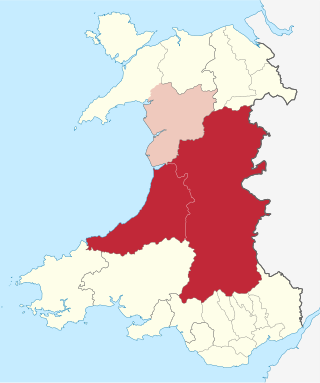
Mid Wales, or Central Wales, is a region of Wales, encompassing its midlands, in-between North Wales and South Wales. The Mid Wales Regional Committee of the Senedd covered the unitary authority areas of Ceredigion and Powys and the area of Gwynedd that had previously been the district of Meirionnydd. A similar definition is used by the BBC. The Wales Spatial Plan defines a region known as "Central Wales" which covers Ceredigion and Powys.

Colchester Zoo is a zoological garden situated near Colchester, England. The zoo opened in 1963 and celebrated its 60th anniversary on 2 June 2023. The zoo is home to many rare and endangered species, including big cats, primates and birds as well as many invertebrates and fish species.
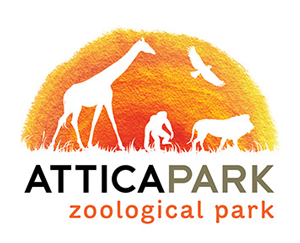
Attica Park, officially Attica Zoological Park (AZP), is a private zoo located in the suburb of Spata, approximately 20 kilometres (12 mi) east of Athens, Greece. It is the only zoo in Greece. The zoo is home to more than 1,500 animals representing 220 species, in an area of 20-hectares. It is open 365 days a year.

A felid hybrid is any of a number of hybrids between various species of the cat family, Felidae. This article deals with hybrids between the species of the subfamily Felinae.

In British folklore and urban legend, British big cats refers to the subject of reported sightings of non-native, typically large felids feral in the United Kingdom. Many of these creatures have been described as "panthers", "pumas" or "black cats".
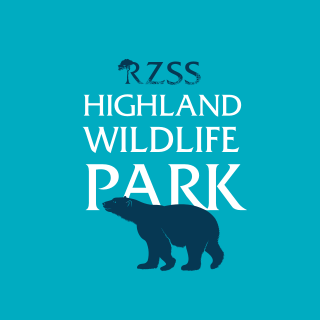
The Highland Wildlife Park is a 105-hectare (260-acre) safari park and zoo near Kingussie, Highland, Scotland. The park is located within the Cairngorms National Park. The park is run by the Royal Zoological Society of Scotland and is a member of the British and Irish Association of Zoos and Aquariums (BIAZA) and the European Association of Zoos and Aquaria (EAZA).

Paignton Zoo is a zoo in Paignton, Devon, England. The zoo was started as a private collection by avid animal collector and breeder, Herbert Whitley, in the grounds of his home Primley House. It was opened to the public on a number of occasions, originally as Primley Zoological Gardens, and closed twice due to disputes with the tax authorities. The commercialisation of the zoo came when animals and attractions were relocated from Chessington Zoo during World War II, and the site was named as Devon's Zoo and Circus

Ynyslas is a small village about 1.5 miles north of Borth and 8 miles north of Aberystwyth, within the county of Ceredigion, Wales. It is sandwiched between a long sandy beach in Cardigan Bay and the beach in the Dyfi Estuary. The area between the sea and the estuary beach is made up of the Ynyslas Sand Dunes which are part of the Dyfi National Nature Reserve and home to many rare plants and animals. The sands of the estuary beach can be driven onto and parked upon. The nature reserve has a visitor centre with toilets and a small shop. At the start of some BBC 1 programmes, it shows people flying kites on the sand dunes, this was filmed at Ynyslas.

Carolina Tiger Rescue is a nonprofit wildcat sanctuary in Pittsboro, North Carolina, that offers public tours and field trips and is home to rescued tigers, lions, cougars, leopards, caracals, servals, bobcats and other wild animals. Over 20,000 visitors come to the sanctuary each year for guided tours, field trips, summer camps, volunteering and corporate work groups. Their mission is saving and protecting wild cats in captivity and in the wild. They work toward a day when wild cats are living in their native habitat and are not exploited by humans. Carolina Tiger Rescue is Global Federation of Animal Sanctuaries (GFAS) and USDA accredited. The Executive Director is Kris Marino.

The Welsh Mountain Zoo is a zoological garden located near the town of Colwyn Bay in Conwy County Borough, Wales. The zoo was opened on 18 May 1963 by the enthusiastic naturist Robert Jackson. The zoo covers an area of 37 acres (15 ha).
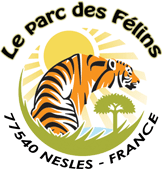
Parc des Félins is a zoological park in France dedicated to the breeding and conservation of wild members of the cat family. It is located in the commune of Lumigny-Nesles-Ormeaux in Seine-et-Marne, about 53.6 km (33.3 mi) southeast of Paris.
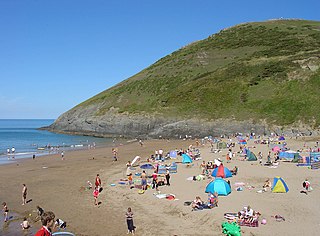
The Ceredigion Coast Path is a waymarked long distance footpath in the United Kingdom, on the coast of Ceredigion, Wales. It is 65 miles (105 km) in length, running along the coast of Cardigan Bay from Cardigan (52.0810°N 4.6608°W) to Ynyslas (52.5271°N 4.0495°W).
Dartmoor Zoological Society is a 33-acre (13 ha) zoo just north of the village of Sparkwell, on the south-west edge of Dartmoor, in the county of Devon in the South West of England. It was opened in 1968 by Ellis Daw who ran it until its licence was revoked and it was forced to close in 2006. The zoo was bought in August 2006 by Benjamin Mee, who reopened the zoo in July 2007, later writing a book about his experiences called We Bought a Zoo (2008). A 2011 film of the same title was loosely based on the book. In September 2014 the zoo became the charity Dartmoor Zoological Society, a charity that focuses on conservation, education and research.

Bow Street is a railway station on the Cambrian Line, which runs between Shrewsbury and Aberystwyth or Pwllheli. The station, situated 4 miles 30 chains (7 km) north-east of Aberystwyth, serves the villages of Bow Street and Pen-y-garn in Ceredigion, Wales. It is owned by Network Rail and managed by Transport for Wales.
A pet exotic felid, also called pet wild cat or pet non-domestic cat, is a member of the family Felidae kept as an exotic pet.

















